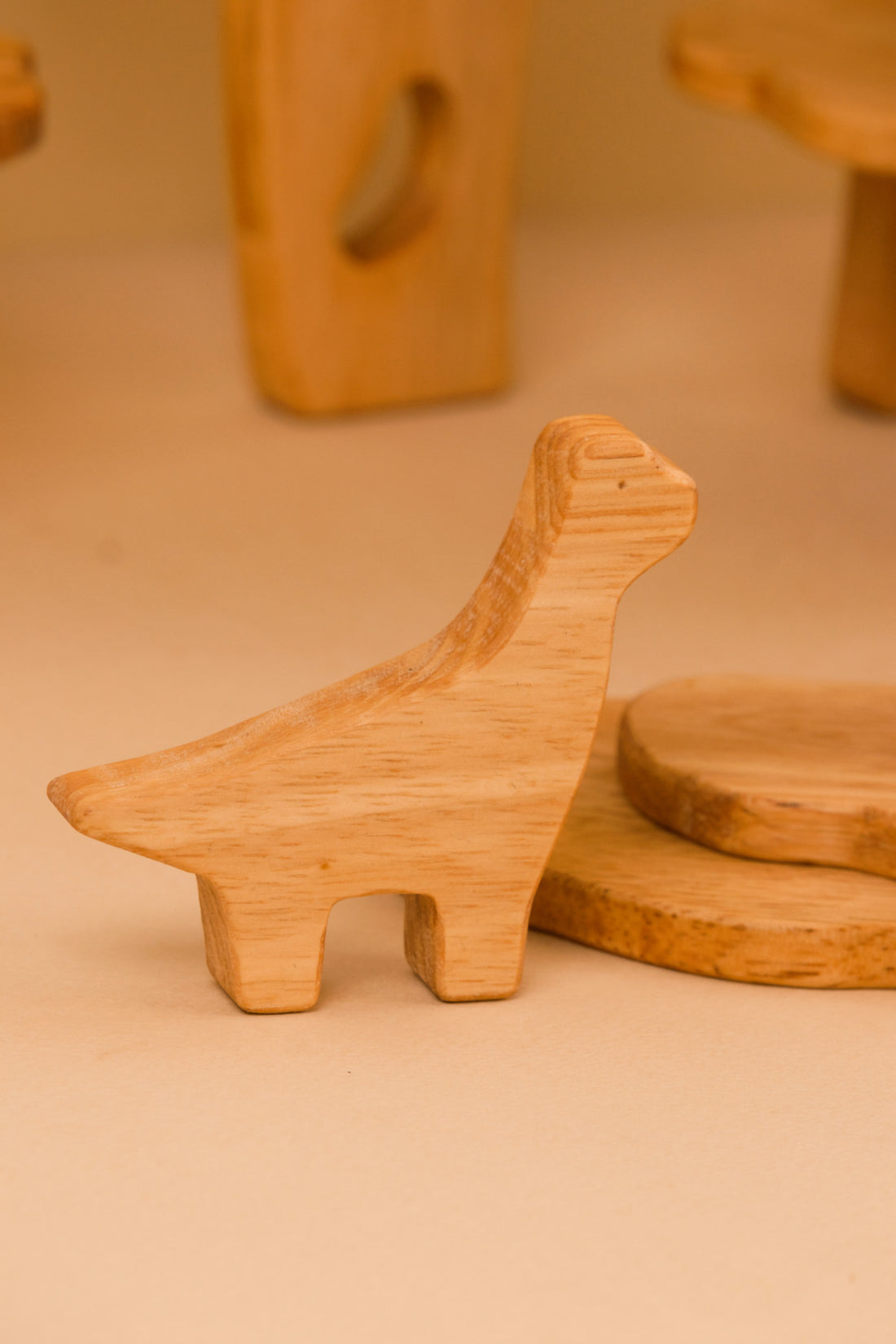The Silent Power of Wooden Toys
In the panorama of playthings available today, wooden toys may seem understated, even quaint. Yet, their impact on a child’s emotional and social development is profound and multifaceted. Far from the allure of flashy electronics, wooden toys offer a more authentic, enriching play experience.
The Foundations of Emotional Growth
Authentic Interaction
Firstly, wooden toys lack pre-programmed responses. Consequently, children project their feelings, aspirations, and narratives onto them. This imaginative play not only fuels creativity but also helps in emotional expression and understanding.
Resilience and Perseverance
Simple wooden puzzles or building blocks pose challenges that demand patience and perseverance. In facing these challenges, children encounter feelings of frustration, followed by the joy of accomplishment, teaching them emotional resilience.
Fostering Mindfulness
The tactile nature of wood, combined with its simplicity, often grounds children in the present moment. As a result, they engage deeply, cultivating a sense of mindfulness and emotional presence.
Wooden Toys and Social Development
Role Play and Empathy
With wooden figurines or dollhouses, children often engage in role-playing scenarios. By stepping into the shoes of different characters, they naturally develop empathy and a better understanding of diverse perspectives.
Collaboration and Teamwork
When children play together with wooden train tracks or building sets, they learn to share, negotiate, and work towards a common goal. Furthermore, this collaborative play fosters teamwork and communication skills.
Learning through Observation
Children watch and learn from their peers. Hence, when they observe friends solving a wooden puzzle or creating a structure, they absorb new strategies, viewpoints, and ways of interaction.
Beyond Play: Lifelong Skills and Virtues
Communication and Expression
By vocalizing their imaginative play or discussing strategies with peers, children enhance their communication skills. Moreover, they learn to articulate feelings, intentions, and ideas more clearly.
Problem-Solving and Conflict Resolution
During play, conflicts may arise over toy possession or game rules. With guidance, these situations become opportunities for children to develop conflict resolution skills, a crucial aspect of social growth.
Cultivating Patience and Sharing
Unlike electronic toys that offer instant gratification, wooden toys require a more patient approach. As children wait their turn or slowly work towards a play goal, they learn the virtues of patience and sharing.
The Lasting Impact of Simple Play
The magic of wooden toys isn’t just in their nostalgic appeal or environmental benefits. Indeed, it's in the essential life skills they instill – skills that go beyond childhood. In a world where emotional intelligence and social understanding are paramount, wooden toys, in all their simplicity, lay the foundation for a richer, more connected life experience.
